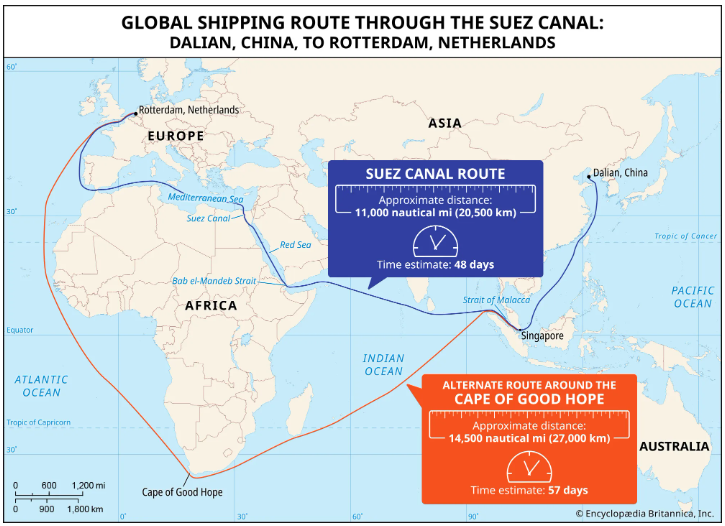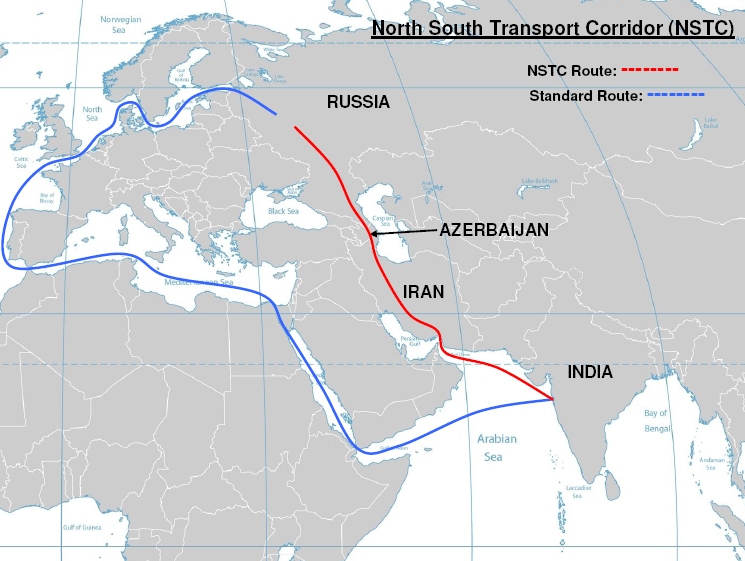BAKU, Azerbaijan, May 24. Transnational corporations (TNCs) are pivotal players in modern international relations, exerting influence across different parts of the globe, often without overtly highlighting their activities. Consequently, the role of TNCs is frequently overlooked when analyzing events in a particular region.
To illustrate the considerable influence of TNCs and major logistics companies on global events, particularly in the transportation of goods and energy via land and sea routes, crucial for the modern world, let's examine the following table. This table compares the market capitalization of APPLE with the GDP of several countries, including some within the top ten globally, based on the latest GDP statistics available.
|
APPLE 2.86 trillion |
|
|
Country |
GDP |
|
Canada |
$2.117 trillion |
|
Italy |
$2 trillion |
|
Brazil |
$2.163 trillion |
| South Korea |
$1.72 trillion |
|
Russia |
$1.862 trillion |
Therefore, it becomes evident that the economic reach of certain companies surpasses even that of major world powers.
According to Trend, the South Caucasus stands out as a significant region for the operations of TNCs. This region encompasses Azerbaijan and Georgia, pivotal countries along the historic Great Silk Road trade route. Presently, Georgia grapples with widespread protests triggered by the adoption of the Law on Transparency of Foreign Influence by its parliament in its final reading. However, it begs the question: who benefits from instability in Georgia? Is the narrative solely framed between the West and Russia? Despite the apparent dominance of political dynamics in shaping the current landscape, one must not disregard the sensitivity of economic elites and transnational corporations towards developments in strategic regions, particularly those with transit roles. Nations marked by instability and frequent tensions inherently pose risks for TNCs and major shipping and logistics firms.
Events unfolding in certain countries have the potential to reshape the landscape of international transportation. Consequently, global economic elites and transnational corporations, detached from national affiliations and often operating autonomously from states, may support protests in select nations, thereby endangering or altering the stability of transportation networks.
So, which major TNCs are active in the South Caucasus? Consider Maersk, the international logistics giant, which operates in 130 countries worldwide, employing a workforce of 95,000 individuals. With a current market capitalization estimated at $25.18 billion, Maersk specializes in transportation, port operations, supply chain management, and warehousing. Renowned for its extensive range of services, Maersk stands as a leading global player in maritime transportation.
Figure 1: The Suez Canal and its alternative route through the Cape of Good Hope

Source: Encyclopaedia Britannica, Inc
Following the Houthi attack on a vessel owned by Maersk in the Red Sea, the company halted its operations in the region and altered its course. Instances like this, sparked by political conflicts, whether pertaining to maritime or terrestrial transportation, inevitably disrupt the flow of cargo transport. Over recent times, there has been a decrease in global shipping activity through the Suez Canal, prompting companies to seek alternative routes, such as navigating via the southern African mainland to reach Europe.
This shift results in escalated transportation and insurance expenses for goods and services, along with delays in delivery timelines. The incident in the Red Sea has also underscored the significance of the Middle Corridor for international logistics firms, acknowledging it as a vital strategic route in Eurasia.
Without a doubt, Maersk faces competition from other players in the industry. Hence, one cannot dismiss the possibility that both nations and major corporations may have a hand in the events that occasionally trigger such disruptions.

Source: Wikipedia
Transnational corporations wield substantial financial clout, enabling them to influence events across various regions globally. This alone underscores their capacity to utilize their budgets, often surpassing those of many nations, to sway political and economic elites or shape media narratives, as exemplified in the context of the South Caucasus.
With the advent of the New World Order, TNCs began to feature prominently in academic theoretical discourse as key players in international political dynamics. Initially nascent, their influence has since surged, reaching unprecedented levels in recent decades and profoundly impacting global processes.
Consequently, these corporations not only vie with each other akin to nation-states but also compete against them. In regions or nations where the power of the nation-state is robust, TNCs find it challenging to achieve their objectives through destabilizing tactics. Conversely, in regions with weaker nation-states and institutions, TNCs can exploit greater maneuverability to exert significant influence, as evidenced by the dynamics unfolding in countries within the South Caucasus currently.
Thus, it is misguided to solely interpret ongoing protests in South Caucasus nations—Georgia and Armenia—and their indirect repercussions on Azerbaijan through the narrow lens of governmental-oppositional or Western-Russia struggles. It is plausible that these developments unfold within a framework of competition to advance the strategic interests of global corporations.
Stay up-to-date with more news at Trend News Agency's WhatsApp channel






